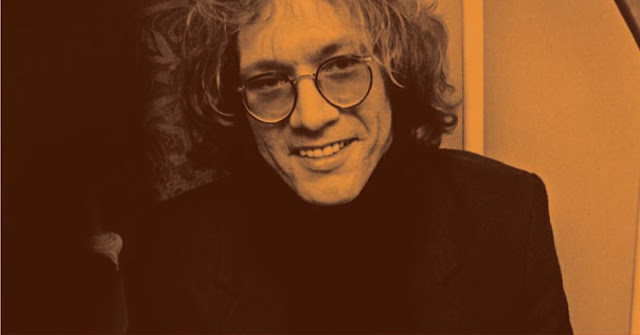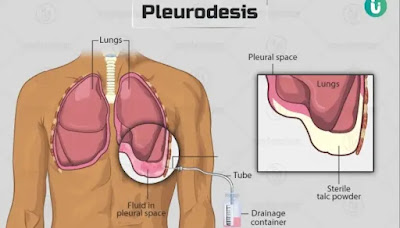How Did Warren Zevon Get Mesothelioma?
How Did Warren Zevon Get Mesothelioma?: Warren Zevon embarked on his musical journey at the age of 16 after leaving high school, relocating to New York City with aspirations of becoming a folk singer.
Throughout his extensive career, he experienced signings and departures from multiple record labels, crafting numerous albums both as a solo performer and through collaborative ventures.
Renowned
tracks such as "Werewolves of London" and "Keep Me in Your Heart,"
featured in his widely acclaimed album Excitable Boy, along with his
significant contributions to other musical icons, solidified his legacy in the
music industry. However, his career was tragically shortened at 56 years old
due to the repercussions of childhood exposure to asbestos.
Face Swelling Can Be A Sign for Lung Cancer?
Fluctuating Career
Throughout
his musical journey, Zevon encountered numerous triumphs alongside setbacks.
Departing high school to pursue his career, he initially composed jingles and
songs for various artists, eventually landing a touring opportunity with the
Everly Brothers in the 1970s. His travels led him to reside with Stevie Nicks
and Lindsey Buckingham, notable members of Fleetwood Mac.
In the
mid-1970s, collaborating with Nicks and other contributors, he released his
debut self-titled album in 1976. Although it achieved modest commercial success
initially, the album has since been recognized as a masterpiece. Zevon's
significant breakthrough came just two years later with the widely acclaimed
and commercially successful album, Excitable Boy.
Following this peak, Zevon faced challenges in his career. His subsequent albums didn't match the earlier level of popularity or critical acclaim.
Personal hardships
and relationship difficulties led him down a path of heavy drug and alcohol
use. After a period in rehabilitation, he dedicated himself to creating new
albums. Throughout the 1980s and 90s, he switched record labels, produced solo
albums, and engaged in collaborations, experiencing varying degrees of success.
It wasn't
until 2000 that critics noted Zevon's resurgence with his album Life'll Kill
Ya. Despite continued success with subsequent albums and appearances as a
bandleader on Late Night with David Letterman, his health began to decline just
as his musical career was resurging.
5 Known Reasons Why You Require A Mesothelioma Attorney
How Did Warren Zevon Get Mesothelioma?
Zevon,
known for his aversion to doctors, avoided regular check-ups for most of his
life. Prior to his mesothelioma diagnosis, he experienced dizziness, a
persistent cough, and later, debilitating pain and breathing difficulties.
Encouragement from others finally led him to seek medical attention, revealing
symptoms that were later identified as related to mesothelioma—a surprising and
unforeseen revelation.
In the fall of 2002, Zevon received a diagnosis of pleural mesothelioma, accompanied by a prognosis of just a few months to live.
Although the exact source of his
asbestos exposure remains unclear, his son linked it to childhood days spent in
his father's carpet store attic. Considering the widespread use of asbestos
until the mid-1970s, Zevon could have encountered exposure through various
avenues during his early years.
Recognizing
the terminal nature of his cancer, Zevon chose to forego treatment.
Mesothelioma demands aggressive treatment for any chance at a cure, but given
his prognosis, he opted not to impede his remaining time. Instead, he focused
on his final album, The Wind.
Throughout
his career, Zevon shared a close bond with David Letterman, who remained one of
his staunchest supporters. In a 2002 interview with Letterman following his
diagnosis, Zevon humorously remarked, “I might have made a tactical error in not
going to a physician for 20 years.” While early detection of mesothelioma
typically offers limited hope, it does broaden treatment options and
potentially improves survival rates.
Despite
his terminal condition, Zevon maintained his wit and positivity. Even when
discussing life and death, he remained characteristic in his response: “Enjoy
every sandwich.”
In his
last months, Zevon participated in a VH1 documentary chronicling the creation
of his final album. Despite initial expectations of a short lifespan, he lived
to witness the birth of his two grandsons in June and the release of his last
album in August. The Wind reached number 12 on the U.S. charts, marking his
most successful album since Excitable Boy in 1978.
Zevon
passed away at home in September, but his legacy endured posthumously.
Nominated for five Grammy Awards, he posthumously won two: Best Contemporary
Folk Album and a collaboration award with Bruce Springsteen. These Grammys were
his first during his extensive career.
Top Reasons Why Military Personnel Become Easy Target of Mesothelioma
Warren Lives On- A Message to His Life
Beyond his
own musical pursuits, Zevon's son, Jordan, diligently upholds his father's
musical heritage. A musician and songwriter in his own right, Jordan remains
committed to preserving his father's musical legacy. However, beyond his
musical endeavors, Jordan passionately advocates for the prohibition of
asbestos.
As a
national spokesperson for the Asbestos Disease Awareness Organization (ADAO),
Jordan actively strives to increase awareness and knowledge surrounding
asbestos and its related illnesses.
His
dedication extends to participating in events like Miles for Meso, a gathering
that follows Mesothelioma Awareness Day, where he performs to commemorate the
day and continue raising awareness.
The
event's proceeds contribute to the ADAO, aligning with Jordan's aspiration to
make a meaningful impact in the campaign to ban asbestos and prevent others
from experiencing his father's tragic fate.
4 Unknown Facts About Essiac Tea and Cancer




Comments
Post a Comment